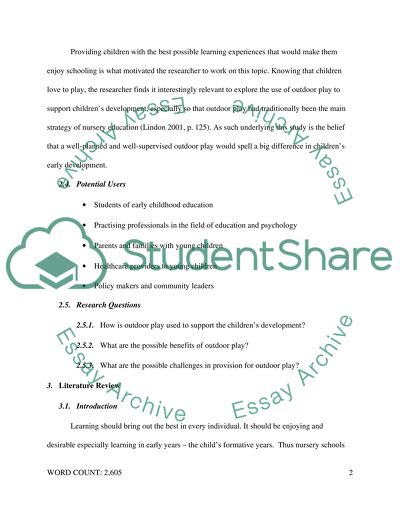Cite this document
(“Exploring the use of outdoor play to support children's development in Essay”, n.d.)
Retrieved from https://studentshare.org/environmental-studies/1416035-exploring-the-use-of-outdoor-play-to-support
Retrieved from https://studentshare.org/environmental-studies/1416035-exploring-the-use-of-outdoor-play-to-support
(Exploring the Use of Outdoor Play to Support children'S Development in Essay)
https://studentshare.org/environmental-studies/1416035-exploring-the-use-of-outdoor-play-to-support.
https://studentshare.org/environmental-studies/1416035-exploring-the-use-of-outdoor-play-to-support.
“Exploring the Use of Outdoor Play to Support children'S Development in Essay”, n.d. https://studentshare.org/environmental-studies/1416035-exploring-the-use-of-outdoor-play-to-support.


